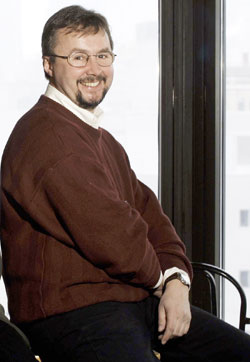The politics of diversity

Guy Lachapelle hosted a workshop on an international convention on cultural diversity being put forward by UNESCO.
File photo
The International Political Science Association just held a workshop on diversity, and IPSA secretary-general Guy Lachapelle is pleased with the way it turned out.
A year ago, UNESCO, the educational and cultural arm of the United Nations, began to consider a convention on “the protection and promotion of the diversity of cultural expressions.” It is due to be proposed for adoption on June 30, 2007, and so far, 16 countries have approved it.
The idea behind this workshop, titled Cultural Diversity, Identities and Globalization, was to assess what the convention means and how it is likely to be implemented.
“UNESCO has previously moved to protect world heritage sites, biodiversity and religion. Culture is also an element,” Lachapelle said. “It’s important to look at the history of these instruments. How will they be used by various levels of government? What do they mean in practical terms?”
Canada was the first country to ratify the convention. Many others have followed, though the United States did not, expressing the view that it would impede free commerce. Britain was among the first to ratify, although Australia still hangs back. Japan is likely to ratify. Turkey must do so in order to qualify for membership in the European Union.
It’s the view of Canada, and a number of other countries, that culture should be excluded from commerce; in fact, the North American Free Trade Agreement reflects that view.
President Claude Lajeunesse launched the IPSA workshop, and Clément Duhaime was the keynote speaker. Duhaime is a Quebecer, but spends most of his time in Paris as the number two executive of the Francophonie group of countries. Other guests were Ahmed Djoghlaf, executive secretary of the convention on biological diversity, and Ivan Bernier, emeritus law professor at Université Laval and an international expert in cultural diversity.
The workshop also benefited from the participation of an official from the UN bureau of statistics, which is based at HEC, the business school of the Université de Montréal. She showed the political scientists how data can be collected and analyzed to measure, for example, the impact of globalization on culture.
Between 40 and 60 people attended the workshop over its two days, including a number of students. Lachapelle, who has been IPSA secretary-general since 2001, looks forward to the next world conference, which will be held in Chile in 2009.
IPSA was established by UNESCO in 1949 as a consultant to the parent body. Since 2005, with the help of Montreal International, it has been based at Concordia, which has one of the largest departments of political science in Canada.